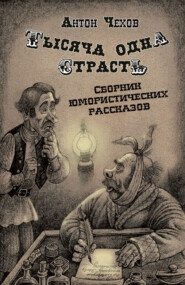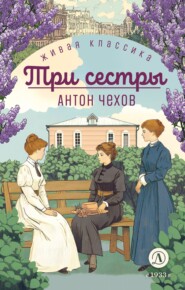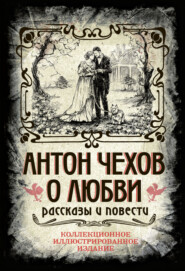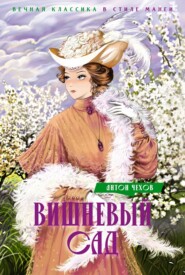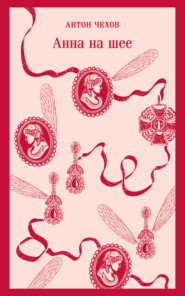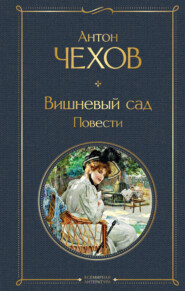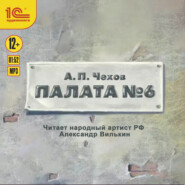По всем вопросам обращайтесь на: info@litportal.ru
(©) 2003-2025.
✖
The House with the Mezzanine and Other Stories
Настройки чтения
Размер шрифта
Высота строк
Поля
"Don't tell me any more," she said. "It is too horrible."
And now she did not leave me. We lived in the big house, in three rooms, and in the evenings we bolted the door that led to the empty part of the house, as though some one lived there whom we did not know and feared. I used to get up early, at dawn, and begin working. I repaired the carts; made paths in the garden, dug the beds, painted the roofs. When the time came to sow oats, I tried to plough and harrow, and sow and did it all conscientiously, and did not leave it all to the labourer. I used to get tired, and my face and feet used to burn with the rain and the sharp cold wind. But work in the fields did not attract me. I knew nothing about agriculture and did not like it; perhaps because my ancestors were not tillers of the soil and pure town blood ran in my veins. I loved nature dearly; I loved the fields and the meadows and the garden, but the peasant who turns the earth with his plough, shouting at his miserable horse, ragged and wet, with bowed shoulders, was to me an expression of wild, rude, ugly force, and as I watched his clumsy movements I could not help thinking of the long-passed legendary life, when men did not yet know the use of fire. The fierce bull which led the herd, and the horses that stampeded through the village, filled me with terror, and all the large creatures, strong and hostile, a ram with horns, a gander, or a watch-dog seemed to me to be symbolical of some rough, wild force. These prejudices used to be particularly strong in me in bad weather, when heavy clouds hung over the black plough-lands. But worst of all was that when I was ploughing or sowing, and a few peasants stood and watched how I did it, I no longer felt the inevitability and necessity of the work and it seemed to me that I was trifling my time away.
I used to go through the gardens and the meadow to the mill. It was leased by Stiepan, a Kurilovka peasant; handsome, swarthy, with a black beard – an athletic appearance. He did not care for mill work and thought it tiresome and unprofitable, and he only lived at the mill to escape from home. He was a saddler and always smelled of tan and leather. He did not like talking, was slow and immovable, and used to hum "U-lu-lu-lu," sitting on the bank or in the doorway of the mill. Sometimes his wife and mother-in-law used to come from Kurilovka to see him; they were both fair, languid, soft, and they used to bow to him humbly and call him Stiepan Petrovich. And he would not answer their greeting with a word or a sign, but would turn where he sat on the bank and hum quietly: "U-lu-lu-lu." There would be a silence for an hour or two. His mother-in-law and his wife would whisper to each other, get up and look expectantly at him for some time, waiting for him to look at them, and then they would bow humbly and say in sweet, soft voices:
"Good-bye, Stiepan Petrovich."
And they would go away. After that, Stiepan would put away the bundle of cracknels or the shirt they had left for him and sigh and give a wink in their direction and say:
"The female sex!"
The mill was worked with both wheels day and night. I used to help Stiepan, I liked it, and when he went away I was glad to take his place.
XI
After a spell of warm bright weather we had a season of bad roads. It rained and was cold all through May. The grinding of the millstones and the drip of the rain induced idleness and sleep. The floor shook, the whole place smelled of flour, and this too made one drowsy. My wife in a short fur coat and high rubber boots used to appear twice a day and she always said the same thing:
"Call this summer! It is worse than October!"
We used to have tea together and cook porridge, or sit together for hours in silence thinking the rain would never stop. Once when Stiepan went away to a fair, Masha stayed the night in the mill. When we got up we could not tell what time it was for the sky was overcast; the sleepy cocks at Dubechnia were crowing, and the corncrakes were trilling in the meadow; it was very, very early… My wife and I walked down to the pool and drew up the bow-net that Stiepan had put out in our presence the day before. There was one large perch in it and a crayfish angrily stretched out his claws.
"Let them go," said Masha. "Let them be happy too."
Because we got up very early and had nothing to do, the day seemed very long, the longest in my life. Stiepan returned before dusk and I went back to the farmhouse.
"Your father came here to-day," said Masha.
"Where is he?"
"He has gone. I did not receive him."
Seeing my silence and feeling that I was sorry for my father, she said:
"We must be logical. I did not receive him and sent a message to ask him not to trouble us again and not to come and see us."
In a moment I was outside the gates, striding toward the town to make it up with my father. It was muddy, slippery, cold. For the first time since our marriage I suddenly felt sad, and through my brain, tired with the long day, there flashed the thought that perhaps I was not living as I ought; I got more and more tired and was gradually overcome with weakness, inertia; I had no desire to move or to think, and after walking for some time, I waved my hand and went home.
In the middle of the yard stood the engineer in a leather coat with a hood. He was shouting:
"Where's the furniture? There was some good Empire furniture, pictures, vases. There's nothing left! Damn it, I bought the place with the furniture!"
Near him stood Moissey, Mrs. Cheprakov's bailiff, fumbling with his cap; a lank fellow of about twenty-five, with a spotty face and little, impudent eyes; one side of his face was larger than the other as though he had been lain on.
"Yes, Right Honourable Sir, you bought it without the furniture," he said sheepishly. "I remember that clearly."
"Silence!" shouted the engineer, going red in the face, and beginning to shake, and his shout echoed through the garden.
XII
When I was busy in the garden or the yard, Moissey would stand with his hands behind his back and stare at me impertinently with his little eyes. And this used to irritate me to such an extent that I would put aside my work and go away.
We learned from Stiepan that Moissey had been Mrs. Cheprakov's lover. I noticed that when people went to her for money they used to apply to Moissey first, and once I saw a peasant, a charcoal-burner, black all over, grovel at his feet. Sometimes after a whispered conversation Moissey would hand over the money himself without saying anything to his mistress, from which I concluded that the transaction was settled on his own account.
He used to shoot in our garden, under our very windows, steal food from our larder, borrow our horses without leave, and we were furious, feeling that Dubechnia was no longer ours, and Masha used to go pale and say:
"Have we to live another year and a half with these creatures?"
Ivan Cheprakov, the son, was a guard on the railway. During the winter he got very thin and weak, so that he got drunk on one glass of vodka, and felt cold out of the sun. He hated wearing his guard's uniform and was ashamed of it, but found his job profitable because he could steal candles and sell them. My new position gave him a mixed feeling of astonishment, envy, and vague hope that something of the sort might happen to him. He used to follow Masha with admiring eyes, and to ask me what I had for dinner nowadays, and his ugly, emaciated face used to wear a sweet, sad expression, and he used to twitch his fingers as though he could feel my happiness with them.
"I say, Little Profit," he would say excitedly, lighting and relighting his cigarette; he always made a mess wherever he stood because he used to waste a whole box of matches on one cigarette. "I say, my life is about as beastly as it could be. Every little squirt of a soldier can shout: 'Here guard! Here!' I have such a lot in the trains and you know, mine's a rotten life! My mother has ruined me! I heard a doctor say in the train, if the parents are loose, their children become drunkards or criminals. That's it."
Once he came staggering into the yard. His eyes wandered aimlessly and he breathed heavily; he laughed and cried, and said something in a kind of frenzy, and through his thickly uttered words I could only hear: "My mother? Where is my mother?" and he wailed like a child crying, because it has lost its mother in a crowd. I led him away into the garden and laid him down under a tree, and all that day and through the night Masha and I took it in turns to stay with him. He was sick and Masha looked with disgust at his pale, wet face and said:
"Are we to have these creatures on the place for another year and a half? It is awful! Awful!"
And what a lot of trouble the peasants gave us! How many disappointments we had at the outset, in the spring, when we so longed to be happy! My wife built a school. I designed the school for sixty boys, and the Zemstvo Council approved the design, but recommended our building the school at Kurilovka, the big village, only three miles away; besides the Kurilovka school, where the children of four villages, including that of Dubechnia, were taught, was old and inadequate and the floor was so rotten that the children were afraid to walk on it. At the end of March Masha, by her own desire, was appointed trustee of the Kurilovka school, and at the beginning of April we called three parish meetings and persuaded the peasants that the school was old and inadequate, and that it was necessary to build a new one. A member of the Zemstvo Council and the elementary school inspector came down too and addressed them. After each meeting we were mobbed and asked for a pail of vodka; we felt stifled in the crowd and soon got tired and returned home dissatisfied and rather abashed. At last the peasants allotted a site for the school and undertook to cart the materials from the town. And as soon as the spring corn was sown, on the very first Sunday, carts set out from Kurilovka and Dubechnia to fetch the bricks for the foundations. They went at dawn and returned late in the evening. The peasants were drunk and said they were tired out.
The rain and the cold continued, as though deliberately, all through May. The roads were spoiled and deep in mud. When the carts came from town they usually drove to our horror, into our yard! A horse would appear in the gate, straddling its fore legs, with its big belly heaving; before it came into the yard it would strain and heave and after it would come a ten-yard beam in a four-wheeled wagon, wet and slimy; alongside it, wrapped up to keep the rain out, never looking where he was going and splashing through the puddles, a peasant would walk with the skirt of his coat tucked up in his belt. Another cart would appear with planks; then a third with a beam; then a fourth … and the yard in front of the house would gradually be blocked up with horses, beams, planks. Peasants, men and women with their heads wrapped up and their skirts tucked up, would stare morosely at our windows, kick up a row and insist on the lady of the house coming out to them; and they would curse and swear. And in a corner Moissey would stand, and it seemed to us that he delighted in our discomfiture.
"We won't cart any more!" the peasants shouted. "We are tired to death! Let her go and cart it herself!"
Pale and scared, thinking they would any minute break into the house, Masha would send them money for a pail of vodka; after which the noise would die down and the long beams would go jolting out of the yard.
When I went to look at the building my wife would get agitated and say:
"The peasants are furious. They might do something to you. No. Wait. I'll go with you."
We used to drive over to Kurilovka together and then the carpenters would ask for tips. The framework was ready for the foundations to be laid, but the masons never came and when at last the masons did come it was apparent that there was no sand; somehow it had been forgotten that sand was wanted. Taking advantage of our helplessness, the peasants asked thirty copecks a load, although it was less than a quarter of a mile from the building to the river where the sand was to be fetched, and more than five hundred loads were needed. There were endless misunderstandings, wrangles, and continual begging. My wife was indignant and the building contractor, Petrov, an old man of seventy, took her by the hand and said:
"You look here! Look here! Just get me sand and I'll find ten men and have the work done in two days. Look here!"
Sand was brought, but two, four days, a week passed and still there yawned a ditch where the foundations were to be.
"I shall go mad," cried my wife furiously. "What wretches they are! What wretches!"
During these disturbances Victor Ivanich used to come and see us. He used to bring hampers of wine and dainties, and eat for a long time, and then go to sleep on the terrace and snore so that the labourers shook their heads and said:
"He's all right!"
Masha took no pleasure in his visits. She did not believe in him, and yet she used to ask his advice; when, after a sound sleep after dinner, he got up out of humour, and spoke disparagingly of our domestic arrangements, and said he was sorry he had ever bought Dubechnia which had cost him so much, and poor Masha looked miserably anxious and complained to him, he would yawn and say the peasants ought to be flogged.
He called our marriage and the life we were living a comedy, and used to say it was a caprice, a whimsy.
"She did the same sort of thing once before," he told me. "She fancied herself as an opera singer, and ran away from me. It took me two months to find her, and my dear fellow, I wasted a thousand roubles on telegrams alone."
He had dropped calling me a sectarian or the House-painter; and no longer approved of my life as a working man, but he used to say:
"You are a queer fish! An abnormality. I don't venture to prophesy, but you will end badly!"






